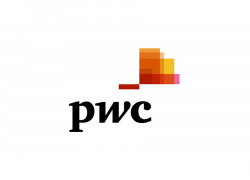Emerging Trends in Real Estate®: Europe 2024
According to the latest Emerging Trends in Real Estate® Europe report from PwC and the Urban Land Institute (ULI), 75% of real estate leaders agree current valuations “do not accurately reflect” all the challenges and opportunities in real estate, as a wedge continues to be driven between market price expectations and book valuations. Fears over “catching a falling knife” are expressed by many of the more than 1000 industry leaders canvassed for the report, as huge uncertainty continues to pervade the market in Europe and contributes to record low investment volumes. MCSI has recorded a -42% drop on the pre-Covid average (2015 - 2019).
The newly released report is a joint survey by PwC and ULI. Now in its 20th edition, the survey provides an outlook on real estate throughout Europe for the near-term and 2023. 1038 respondents from 20 countries participated in this year’s survey reflecting on uncertainty, the outlook for offices and the effect of Environmental Social Governance (ESG) on balancing profit with the future needs of a fast-changing society:
- 91% say inflation is the leading concern for the business environment in 2023;
- 79% say political instability internationally is a cause for concern;
- 93% believe ESG is the most important factor for successful organisational transformation.
Getting fit for purpose - Top Trends
Industry leaders continue to weather the geopolitical storm, with the added burden of inflationary pressures. There are a number of trends that clearly emerged from the results:
Interest rate movements: In 2023, central bank interest rate hikes have caused many in the industry to adopt a wait-and-see approach, delaying dynamic strategies and hoping for better news in 2024.
Political Instability: The Ukraine conflict remains a key factor in Europe with a trend towards right-wing politics in several countries. Economic pressures in the US and China complicate the global outlook. Growth of the Brazil Russia India China South Africa bloc (BRICS) suggest a less Eurocentric future for politics.
European economic growth: Sluggish European economies have brought affordability to the forefront of social debate. As inflation globally peaks and concerns about rising interest rates reduce, many in European real estate see opportunities ahead.
ESG: 9/10 survey respondents think ESG issues will be the biggest impact on Real Estate (RE) by 2050. Challenges related to environment, regulation and obsolete assets are predicted to rise.
Energy infrastructure is seen as having the best investment, development and rental prospects.
Business liquidity issues: Amid a challenging macro-economy, the toll on occupier markets is yet to be fully felt. Break clauses are getting exercised and business failures are increasing. Logistics, housing and alternative sectors remain resilient.
Reduced consumer demand: Expectations for retail property remain subdued with high inflation and interest rates continuing to squeeze consumer spending across Europe.
Market liquidity: Two thirds of survey respondents reference market liquidity issues. Only 29% of respondents expect to be net buyers of RE assets by the end of 2024. Clarity on inflation, interest rates and valuations are needed to increase transaction activity.
Artificial Intelligence: AI, technology and digitalisation are ranked second only to ESG as a top real estate trend for the future. Many believe it will impact marketing, leasing, planning, asset management, construction, and investment, making operations more efficient.
Construction costs and resource availability: While construction price inflation has subsided, labour shortages remain in the construction market. Rising construction bankruptcies in some European countries could be problematic over the next 18 months.
In Luxembourg, the delay in the start of construction projects and the cash flow problems encountered in the sector have led to numerous bankruptcies in the building sector and suggest that it will be difficult to return to historical production levels in the future.
Asset obsolescence: Asset obsolescence could accelerate driven by a combination of sustainability requirements and changing tenant demands.
Cybersecurity: Cybersecurity has held strong for the third year in a row as an issue causing concern. 67% concerned for 2022, 48% for 2023 and 66% for 2024.
For the European RE market, the report concludes: “The cautious outlook in this year’s Emerging Trends in Real Estate® Europe report reflects an industry still coming to terms with hugely challenging economic circumstances after a decade of cheap debt which drove deals and globalisation trends that enabled construction, followed by monetary policies that papered over the cracks caused by the pandemic.”
European City rankings — overall prospects
The report reveals that, at the ranking of 20, Luxembourg also has a fixed position in the eyes of survey respondents. It benefits from the presence of a large number of institutional vehicles and favourable development conditions which have raised the ESG quality of the stock — its offices are among the newest in Europe.
Luxembourg, Vienna and Copenhagen are typical of the smaller cities that perform well across many of the survey's city investment criteria but which are often overlooked by international investors. As the rankings indicate, these cities suffer disproportionately from their smaller size and lack of liquidity. The city rankings for this year illustrate the strength of Tier 1 cities and their overall attractiveness to real estate industry professionals.
However in a market full of uncertainties, transaction volumes have fallen by 49% in one year.
René Paulussen, Alternatives Leader at PwC Luxembourg
“Just as in the rest of Europe, high interest rates and geopolitical tensions have had an impact on the Luxembourg real estate market, however the key fundamentals are still very strong for the long-term. The Grand Duchy is projected to see double-digit population growth over the next nine years, according to Eurostat, the EU statistics bureau, ensuring a high demand for real estate coupled with already low vacancy rates.”
Pierre Wauthier, Partner, Corporate Finance - Real Estate Advisory, PwC Luxembourg says :
“In a real estate market undermined by inflation and interest rates increases, debt and equity availability remains problematic. Investors are there, but remain cautious in an uncertain market. Against this backdrop, the sector is waiting for an incentive policy for residential development to bring back first-time buyers and investors, to speed up public development projects and protect the industry.”
Communiqués liés
Emerging Trends in Real Estate®: Europe 2024
According to the latest Emerging Trends in Real Estate® Europe report from PwC ...
PwC Luxembourg: Best ESG (Environmental, Social and Governan...
The CFI.co judges have conferred on PwC Luxembourg the 2023 award for Best ESG (...
New Managing Partner and the Country Leadership Team for PwC...
It is with great pleasure that PwC Luxembourg announces that François Mousel as...
Use of Data Analytics and Artificial Intelligence in Luxembo...
PwC Luxembourg has just released the results of its survey: “Use of Data Analy...
Growing for the future: 18 New Partners and 5 Managing Direc...
With a record number of promotions, PwC Luxembourg is proud to announce the admi...
PwC Luxembourg publishes The SFDR Barometer for Management C...
PwC Luxembourg publishes The SFDR Barometer for Management Companies.
Il n'y a aucun résultat pour votre recherche







